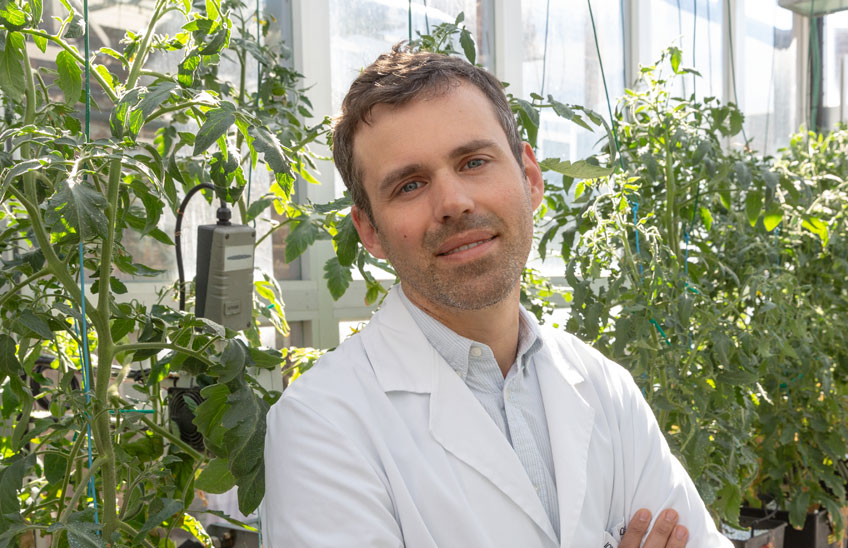BIOMA Institute studies plant adaptation to climate change through CarViTrans project
The University's Biodiversity and Environment Institute BIOMA studies how water consumption in plants such as grapevines is affected by increased CO2 levels and higher temperatures.

FotoManuel Castells<br>/Johann Martínez-Lüscher, investigador principal del proyecto CarViTrans.
06 | 02 | 2025
Climate change and water scarcity are putting agricultural production in Spain at risk, especially in rainfed summer crops. Agriculture, as the main user of water resources, faces the challenge of optimizing its water use efficiency to ensure its long-term sustainability. This problem not only affects food production, but also has environmental, economic and social repercussions, such as the loss of biodiversity, higher prices and food security problems. In this context, there is a need to research strategies to maintain the viability of these crops in a scenario of higher temperatures and increasingly limited water availability .
Carbon dioxide emissions resulting from climate change have two main effects on crops: the increase in temperatures, which, associated with this gas due to the greenhouse effect,increases water consumption by stimulating transpiration; andCO2 fertilization, which induces stomatal closure and lower transpiration, and can reduce water consumption. "programs of study like this can guide us to achieve sustainable production systems under climate change conditions," says Johann Martinez-Lüscher, principal researcher of the CarViTransproject .
This question raises the need to understand which characteristics of plants help them to better adapt to climate change. "It is necessary to understand these adaptation strategies to preserve the viability of these crops because of their low environmental impact," says Johann. To study this adaptation, the researchers will focus on varieties that, even when there is moreCO2 in the air and temperatures rise, continue to use water efficiently over the long term. The grapevine plant has been chosen because "the cultivation of this plant is of great sociocultural and tourist value in Spain due to the large wine production," adds the researcher.
The CarViTrans project , with a duration of three years, involves BIOMA Institute researchers Johann Martínez-Lüscher, Juan José Irigoyen, Maria del Carmen Antolín and Ángel Zamarreño from the Plant Stress Physiology and Chemistry and Agricultural Biology groups, together with research techniciansMónica Oyarzun and Héctor Santesteban, and PhD student Maia Garde. CarViTrans has been funded by the Ministry of Science, Innovation and Universities with 148,750 €. In addition to the funding, the project has received a pre-doctoral scholarship from the Ministry for the training of researchers.




